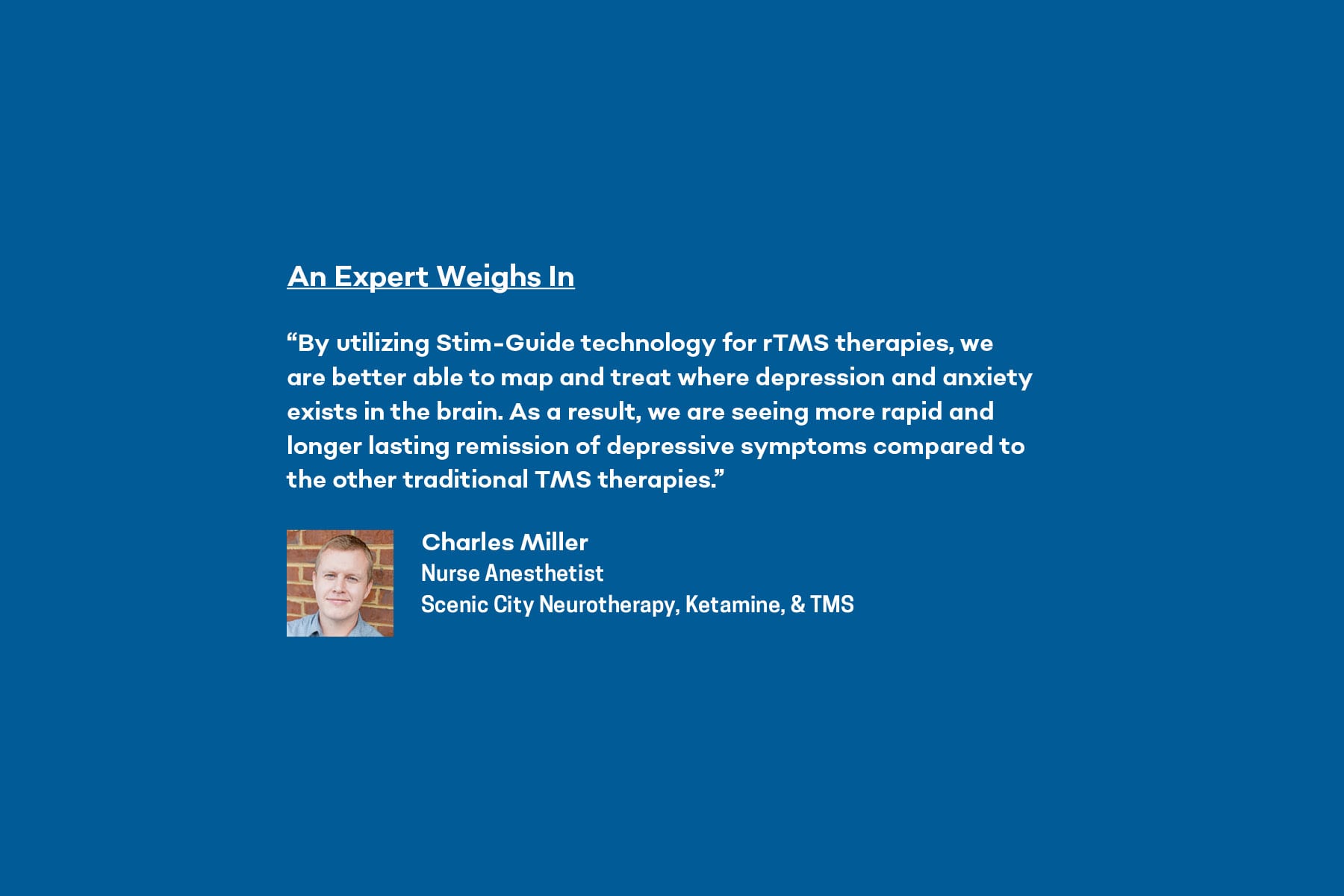Tech For Your Health
Medical technology is changing and evolving all the time. From the latest in robotic surgery to high-tech treatment options for mental health and wellness, read on to learn more about the most up-to-date technological advancements in healthcare.
By Anna Hill
The StimGuide Navigated TMS system utilizes the latest in technological advancements to treat patients with persistent symptoms of depression.
What Is It, And How Does It Work?
The StimGuide Navigated TMS system is an advanced technology used in tandem with the rTMS MagStim machine to deliver a non-invasive, drug-free therapy treatment known as repetitive transcranial magnetic stimulation (rTMS). rTMS therapy is delivered via the MagStim in a series of short, repetitive magnetic pulses that stimulate certain neurons in the brain. These pulses will induce electrical currents throughout the brain, which stimulate nerve cells. This causes increased oxygen circulation in the brain, which restores its activity back to normal levels, thus alleviating the imbalanced state of the brain that is causing the patient’s symptoms of depression.
What sets the MagStim device apart is its StimGuide navigation system, which allows for a streamlined method of 3D positioning – no MRI required. The technology uses four different parameters to ensure accurate positioning for treatment delivery: contact, XY location, tilt, and rotation. These parameters optimize the MagStim machine’s coil placement, which enhances each patient’s treatment session, allowing more accurate targeting of the areas of the brain causing a patient’s symptoms of depression.
The treatment that the StimGuide enables the MagStim machine to deliver – rTMS therapy – requires no downtime and allows patients to return to their daily activities immediately afterward. The therapy is usually administered in several sessions over a span of days or weeks, depending on your course of treatment.
What Are the Benefits?
The StimGuide’s advanced positioning methods allow healthcare professionals administering the treatment to more accurately and efficiently target the exact areas of the brain that are causing problems. Furthermore, many forms of antidepressant medications have the potential to cause unwanted side effects, such as insomnia, digestive problems, changes in weight, headaches and brain fog, and sexual dysfunction. The therapy administered eliminates the possibility of such side effects and can help patients achieve long-term relief from their symptoms in a short amount of time. In fact, this type of therapy has brought symptom relief or remission to nearly 70% of patients who have undergone treatment sessions.
Who Is It For?
Depression is something that affects millions of Americans each year, and for some, it can be a lifelong battle. While there are several different treatment options, such as cognitive-behavioral therapy and various types of medication, depression can be stubborn, and these treatments might not always alleviate a person’s symptoms. rTMS therapy, guided by the StimGuide and delivered via the MagStim, bypasses some of the complications that accompany medication and can be a good option for those struggling with depression. It was also recently approved by the FDA for treatment of obsessive compulsive disorder (OCD), and there is currently ongoing research about how it might be a good treatment option for other conditions and disorders.HS


